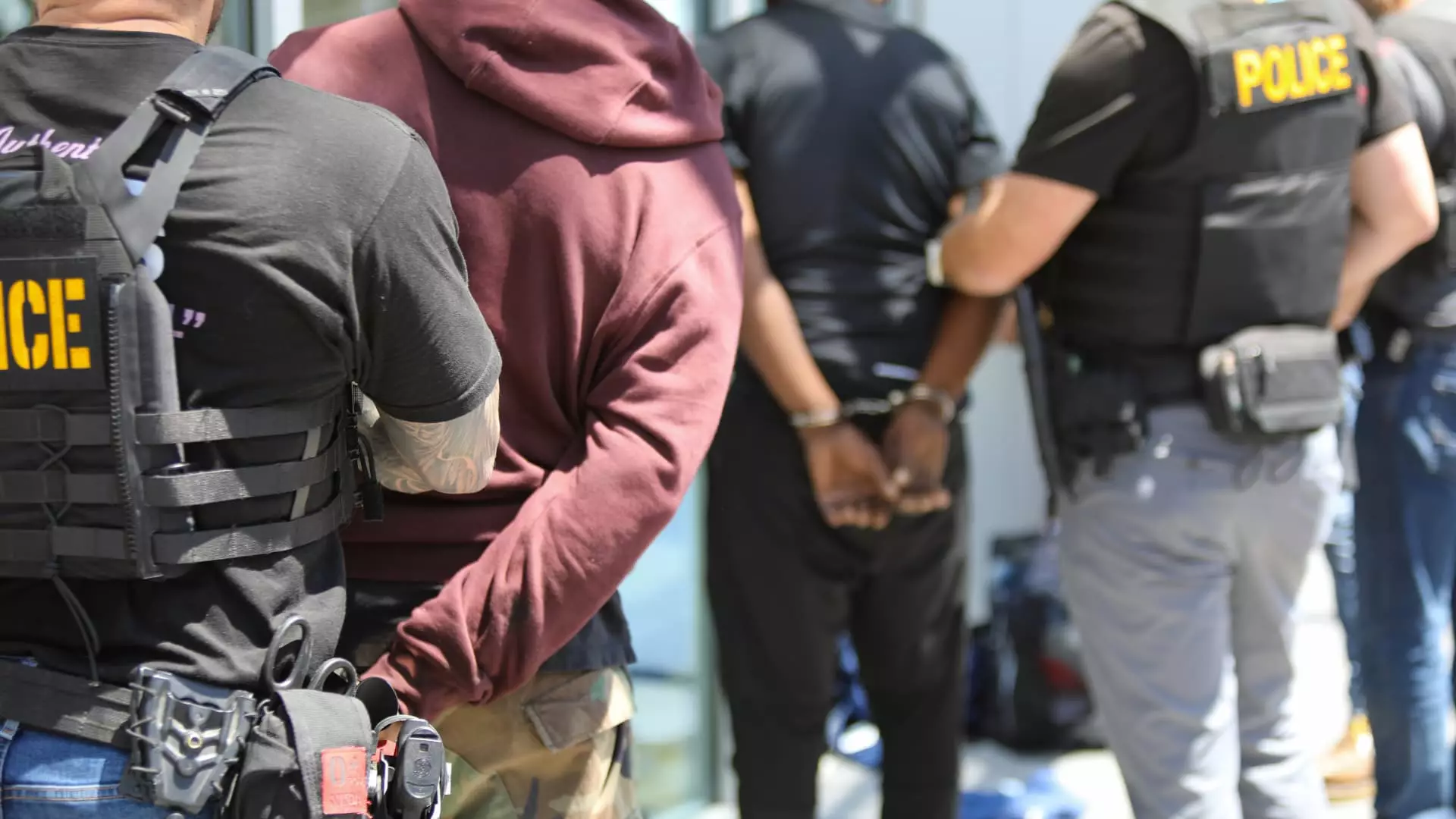The recent nationwide crackdown on retail crime has exposed a grim reality that many have chosen to overlook for far too long. Spearheaded by the Cook County regional organized crime task force in Illinois, this monumental operation saw law enforcement agencies across 28 states band together in a forceful display against retail theft. Over 100 jurisdictions collaborated with more than 30 prominent retailers, such as Home Depot, Macy’s, and Target, to tackle what has escalated into a widespread epidemic of organized retail crime. This coordinated effort demonstrates that authorities are finally awakening to a complex web of theft that has undermined businesses, disrupted communities, and threatened the very fabric of our societal norms.
Yet, as Sheriff Tom Dart aptly described, “When they see it is being prosecuted and taken seriously, it deters conduct.” How can we reconcile this assertion with the troubling increase in incidents of shoplifting, which surged by a staggering 93% from 2019 to 2023, according to the National Retail Federation? The urgency and scale of this response highlight the failure of past strategies to manage crime, necessitating urgent reforms not merely in enforcement but also in the legal frameworks that enable their efficacy.
The Alarming Statistics Behind the Crisis
The statistics surrounding organized retail crime paint a bleak picture. Retailers have reported a whopping 90% increase in financial losses tied to theft during the same period. This is not just an issue isolated to specific regions or businesses but a pervasive dilemma that has begun to chip away at the foundation of consumer trust and economic stability. In an age where services and goods are commoditized, the credibility of retailers equates to sustainability—and this credibility thrives on the assumption that theft can be controlled.
What’s particularly unsettling is the critique of a failure to enforce laws adequately. Many argue that the existing thresholds for felony charges have acted as a magnet for repeat offenders, emboldening them to commit crimes without the fear of consequence. With the legal allowance to charge someone with a felony only when the stolen goods surpass $1,000, it sets a dangerously high bar that fails to deter theft. As Cook County State’s Attorney Eileen O’Neill Burke emphasized, her office is pivoting to a more aggressive stance in pursuing felony charges on cases where the theft exceeds $300 or when offenders have prior felony records.
The imperative here is clear: if we wish to tackle this crime wave effectively, we must recalibrate our legal frameworks to reflect reality. The notion that retail crime can be sidelined or considered a minor nuisance is not only naive—it’s actively destructive.
The Importance of Collaboration and Shared Responsibility
The coordinated efforts between law enforcement, prosecutorial offices, and retailers underscore an essential truth: we cannot rely on a singular entity to eradicate this growing menace. As Ulta Beauty Senior Vice President of Loss Prevention Dan Petrousek stated, “Collaboration is key to making a meaningful impact.” The synergy required to make a substantial difference lies in the shared responsibility of both the private sector and public institutions.
In an increasingly complicated world, it is gratifying to witness entities like Walgreens actively partnering with law enforcement across multiple cities to implement actionable strategies aimed at curbing this trend. This approach not only galvanizes resources but also fosters a sense of collective accountability. It sends a message that organized crime does not merely threaten bottom lines—it threatens the very communities retailers claim to serve.
Though this initial crackdown is promising, it should serve as a springboard for more comprehensive solutions. The ongoing sharing of intelligence, data collection, and collaborative interventions will not merely constitute a one-time blitz but a sustained campaign to irrevocably change the tide against retail crime.
As troubling as the reports of theft are, they are underpinned by larger systemic issues—issues that call for attentive governance, robust policymaking, and community engagement. To dismiss the rampant crime wave as a mere symptom of economic downturn or social upheaval is an abdication of responsibility. Instead, let’s continue to hold ourselves accountable—both as consumers and as citizens—to advocate for solutions that ensure safer shopping environments for everyone, while empowering those who stand on the frontline against this crisis.

